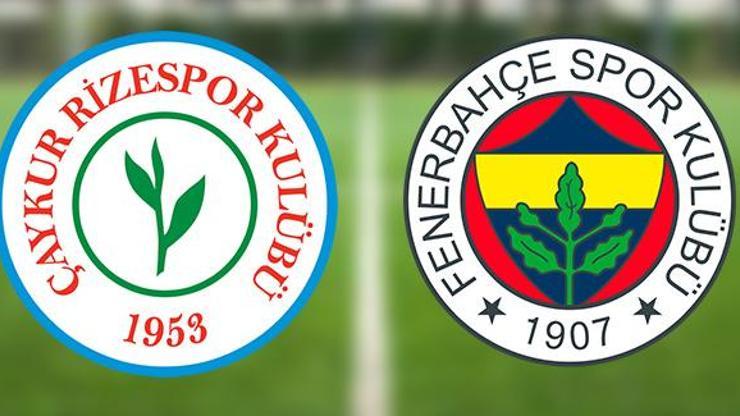Copa Paulista 2023: A Showcase of Emerging Talent in São Paulo
Por um escritor misterioso
publicado em outubro/30/2024

The Copa Paulista is a regional football tournament held in the state of São Paulo, Brazil. It serves as a platform for emerging talent to showcase their skills and potentially secure contracts with professional clubs. This article explores the significance of the Copa Paulista, its history, and the impact it has on young players.


The tournament serves as a platform for emerging talent to showcase their skills and catch the attention of professional clubs. Many young players see participating in the Copa Paulista as an opportunity to prove themselves and potentially secure contracts with established teams.
One of the main reasons why the Copa Paulista is highly regarded is because it provides exposure to players who may not have had many opportunities at higher levels. In Brazil, where football is deeply ingrained in society, there are countless talented individuals dreaming of making it big in the sport. However, due to several factors such as lack of resources or limited scouting networks, not all talented players get noticed by professional clubs.
The Copa Paulista bridges this gap by creating a platform where these hidden talents can shine. Participating teams range from well-known lower-tier clubs like XV de Piracicaba and Ferroviária to lesser-known youth academies affiliated with professional teams such as Corinthians or Palmeiras.
The format of the tournament usually consists of group stages followed by knockout rounds leading up to a final match that determines the champion. This setup allows multiple games for each team involved – giving players ample opportunities to impress scouts and coaches watching from both local and national clubs.
Some notable players who have used the Copa Paulista as a stepping stone in their careers include Gabriel Jesus, Everton Ribeiro, and Willian. These players began their journey towards professional success by showcasing their abilities in this tournament before moving on to bigger stages like the Campeonato Brasileiro or even international competitions.
Beyond the individual benefits for aspiring players, the Copa Paulista also contributes to the development of football infrastructure in São Paulo. The tournament attracts attention from fans and media alike, generating interest and support for lower-tier clubs that may struggle financially or lack exposure.
Additionally, it serves as a testing ground for new ideas and strategies implemented by coaches. As teams compete against each other with varying levels of experience and resources, different playing styles emerge – creating an environment conducive to innovation and improvement.
The Copa Paulista has a rich history dating back to its inception in 1999. Over the years, it has become more prominent within Brazilian football circles due to its ability to showcase emerging talent effectively. It has also garnered attention from professional clubs who recognize its value as a talent pool.
Looking ahead to the future of the Copa Paulista, there are several exciting possibilities. With advancements in technology and increased scouting networks, there is potential for even greater exposure for participating players. Additionally, collaborations between professional clubs could provide additional opportunities for talented individuals spotted during the tournament.
In conclusion, the Copa Paulista is not just another regional football tournament; it is an important platform that nurtures emerging talent in São Paulo. By providing exposure and opportunities for young players who may have otherwise gone unnoticed by professional clubs, this competition plays a crucial role in shaping Brazil's football landscape. As we look forward to future editions of the Copa Paulista, we can expect more promising talents to emerge from this highly regarded tournament.



/i.s3.glbimg.com/v1/AUTH_bc8228b6673f488aa253bbcb03c80ec5/internal_photos/bs/2022/B/8/OOA1IORlqqlhJYGwN6Jw/ficha-novorizontino-x-csa.png)

Comprar Notebooks

Campeonato Paulista 2024 - Fórum Chaves • Chaves, Chapolin e, premiação do campeonato paulista 2024
The Copa Paulista is an annual football tournament held in the state of São Paulo, Brazil. It is organized by the Federação Paulista de Futebol (FPF) and features teams from various divisions, including lower-tier professional clubs and youth academies.The tournament serves as a platform for emerging talent to showcase their skills and catch the attention of professional clubs. Many young players see participating in the Copa Paulista as an opportunity to prove themselves and potentially secure contracts with established teams.
One of the main reasons why the Copa Paulista is highly regarded is because it provides exposure to players who may not have had many opportunities at higher levels. In Brazil, where football is deeply ingrained in society, there are countless talented individuals dreaming of making it big in the sport. However, due to several factors such as lack of resources or limited scouting networks, not all talented players get noticed by professional clubs.
The Copa Paulista bridges this gap by creating a platform where these hidden talents can shine. Participating teams range from well-known lower-tier clubs like XV de Piracicaba and Ferroviária to lesser-known youth academies affiliated with professional teams such as Corinthians or Palmeiras.
The format of the tournament usually consists of group stages followed by knockout rounds leading up to a final match that determines the champion. This setup allows multiple games for each team involved – giving players ample opportunities to impress scouts and coaches watching from both local and national clubs.
Some notable players who have used the Copa Paulista as a stepping stone in their careers include Gabriel Jesus, Everton Ribeiro, and Willian. These players began their journey towards professional success by showcasing their abilities in this tournament before moving on to bigger stages like the Campeonato Brasileiro or even international competitions.
Beyond the individual benefits for aspiring players, the Copa Paulista also contributes to the development of football infrastructure in São Paulo. The tournament attracts attention from fans and media alike, generating interest and support for lower-tier clubs that may struggle financially or lack exposure.
Additionally, it serves as a testing ground for new ideas and strategies implemented by coaches. As teams compete against each other with varying levels of experience and resources, different playing styles emerge – creating an environment conducive to innovation and improvement.
The Copa Paulista has a rich history dating back to its inception in 1999. Over the years, it has become more prominent within Brazilian football circles due to its ability to showcase emerging talent effectively. It has also garnered attention from professional clubs who recognize its value as a talent pool.
Looking ahead to the future of the Copa Paulista, there are several exciting possibilities. With advancements in technology and increased scouting networks, there is potential for even greater exposure for participating players. Additionally, collaborations between professional clubs could provide additional opportunities for talented individuals spotted during the tournament.
In conclusion, the Copa Paulista is not just another regional football tournament; it is an important platform that nurtures emerging talent in São Paulo. By providing exposure and opportunities for young players who may have otherwise gone unnoticed by professional clubs, this competition plays a crucial role in shaping Brazil's football landscape. As we look forward to future editions of the Copa Paulista, we can expect more promising talents to emerge from this highly regarded tournament.

CASAS BAHIA: NOTEBOOK EM OFERTA - Mundo Social

Celta de Vigo - Real Madrid: Horario y dónde ver el partido de la Liga Santander

Rizespor Fenerbahçe maçı ne zaman, saat kaçta, hangi kanalda?
/i.s3.glbimg.com/v1/AUTH_bc8228b6673f488aa253bbcb03c80ec5/internal_photos/bs/2022/B/8/OOA1IORlqqlhJYGwN6Jw/ficha-novorizontino-x-csa.png)